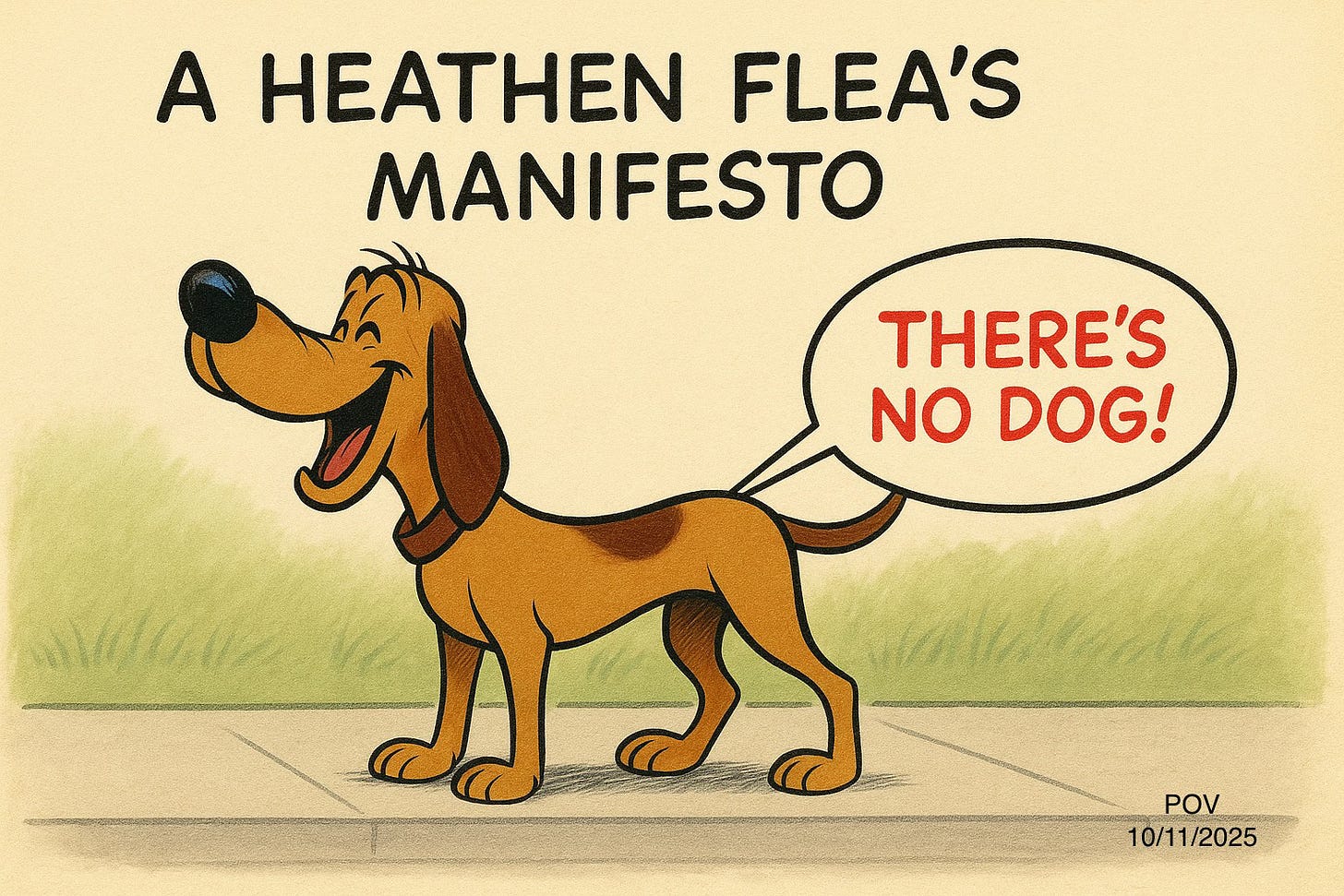Letter #1 – The Flea Says in Its Heart: “There’s no Dog.”
In which Teófilo writes his first letter from the heart and muses about the existence of “dog.”
Dear Brothers and Sisters:
May the peace of Jesus Christ be with you!
On this my first letter to you I’d wanted to talk to you about the is-ness of God. By that I mean that God is and cannot not be. On the title and in the caricature I’m using a flea as a proxy for human beings. You’ll see why.
Denying the existence of God is a hallmark of our postmodern culture. It’s become the basic stance of most intellectuals in our society, whereas many other live as if there is no God.
The phenomenon isn’t new. On Psalm 14:1 we can see already that the Psalmist new of the denial of God. This Psalm could’ve been written as long as 3,000 years ago. There were atheists even then, though the Psalmist called them fools. Atheism wasn’t as popular back then as it is today.
Once monotheism became a mature religious posture, people began to reflect on its meaning. What does it mean that there’s only one God and how does He relate to the rest of the universe? What are God’s attributes? Can we say anything true about Him?
I like one of the things St. Paul told the wisemen of Athens’ Areopagus when introducing them to God. He said:
For ‘In him we live and move and have our being’; as even some of your own poets have said, ‘For we too are his offspring’ (Acts 17:28 NRSVCE).
Paul quoted with approval these insights from Gentile poets and philosophers as something descriptive of God as Paul had come to know Him. Paul, then, understood God as a Reality who surrounded and permeates us. We move emmeshed by God and from this very “emmeshing” we “take our being,” that is, we live and exist.
God’s non-existence was inconceivable to Paul. No God, no us, no everything. The existence of anything was proof enough for Paul of God’s existence. If there’s something that God “cannot do” is to cease being Himself. The very ground of existence is in Him and He has existence in Himself.
A God so vast and yet so much a part of ourselves is difficult for us to imagine. That’s why many take it upon themselves to deny Him.
But in this we are very much like the flea in my story. God surrounds and enlivens us, much as “dog” surrounds the flea, conforms and feeds it. If fleas could reason and speak, they wouldn’t deny “dog.” Though for sure, a few would.
Let’s not be fleas. Let’s be what Paul and the Athenians knew we were: God’s very offspring.





“In him we live and move and have our being.” He “surrounds us and dwells in us.” I would claim that panentheism is compatible with these passages. Rather than the flea, however, I wonder if a living cell within the dog might be a better metaphor. The cell does not = the dog, yet is sublated into its being, without losing its distinctive reality. What do you think?